Literary Legacies Furthered In Ockham NZ Awards
Incisive, superbly crafted and adding fresh layers to our rich tapestry - we get reaction from the winners of the 2023 Ockham New Zealand Book Awards.
Written by
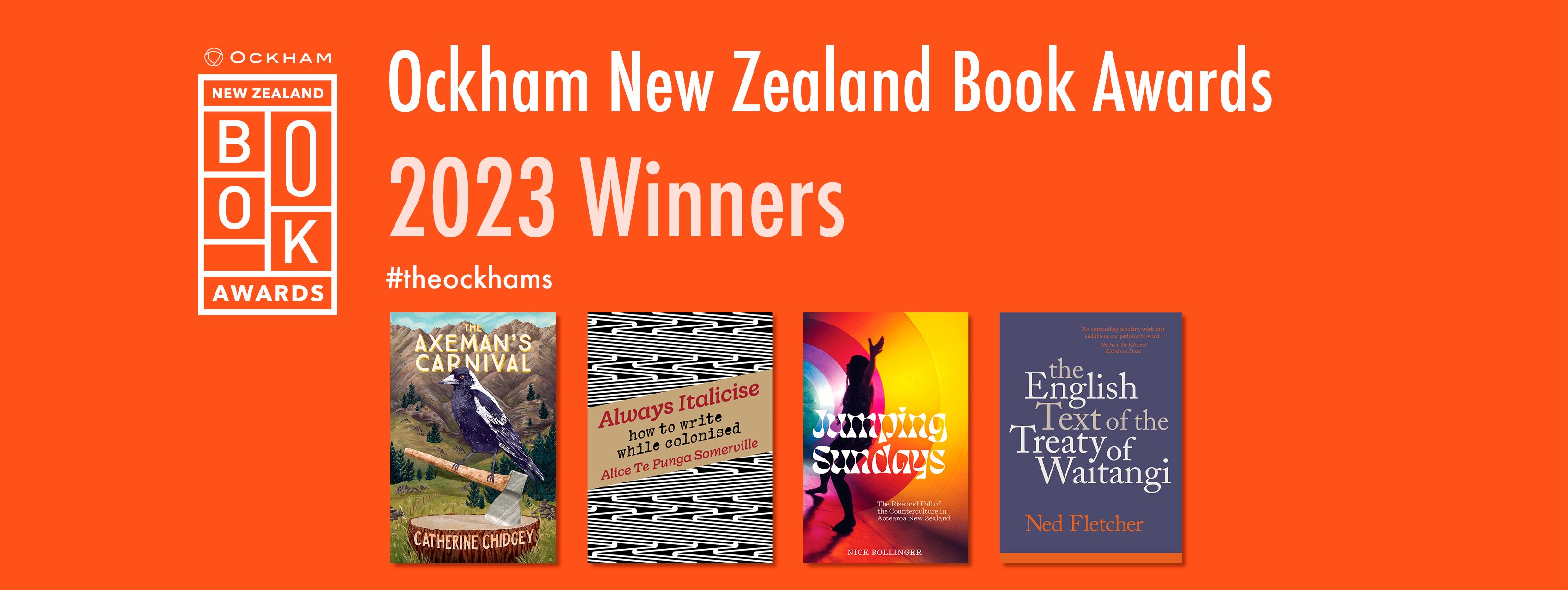
A bird’s eye view of a gothic tale, hippies and freaks shaking the establishment, the Treaty revisited, and a Māori woman scholar’s challenging poetry, claimed the top honours at Kiri Te Kanawa Theatre in central Auckland last night (Wednesday 17 May).
Catherine Chidgey’s intoxicating novel The Axeman’s Carnival scored the top prize of $64,000 being named the Jann Medicott Acorn Prize for Fiction and creating an engaging new cult hero, Tama the talking magpie.
The Ngāruawāhia resident is now the first author to score the richest prize in Aotearoa literature twice, alongside her The Wish Child triumph in 2017.
The judges described her latest masterpiece as “a page–turning novel of depth, pathos and humanity that skilfully infuses comedy with … menace”.
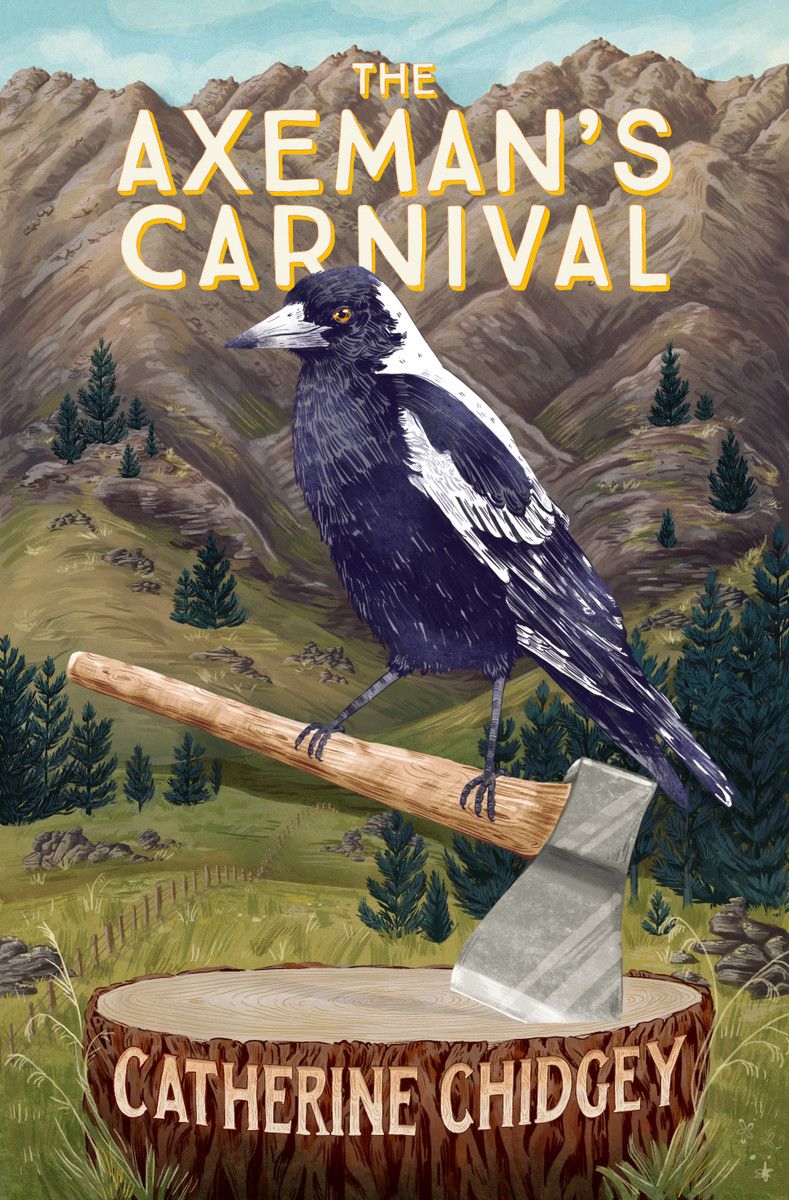
Chidgey received the premier prize ahead of screenwriter and author Michael Bennett (Ngāti Pikiao, Ngāti Whakaue) (Better the Blood); historian and novelist Monty Soutar (Ngāti Porou, Ngāti Awa, Ngāi Tai ki Tāmaki, Ngāti Kahungunu) (Kāwai: For Such a Time as This); and sailor and novelist Cristina Sanders (Mrs Jewell and the Wreck of the General Grant).
She told the hundreds of fellow authors, fans, patrons, and publishers inside the theatre that Tama couldn’t be there but, as she waved a hefty manuscript “‘he did prepare a speech he wanted me to read. It’s mostly profanities”. She also saluted Te Herenga Waka University Press, her publisher for a quarter of a century.
“Enormous thanks to my husband Alan and our little chick, Alice.”
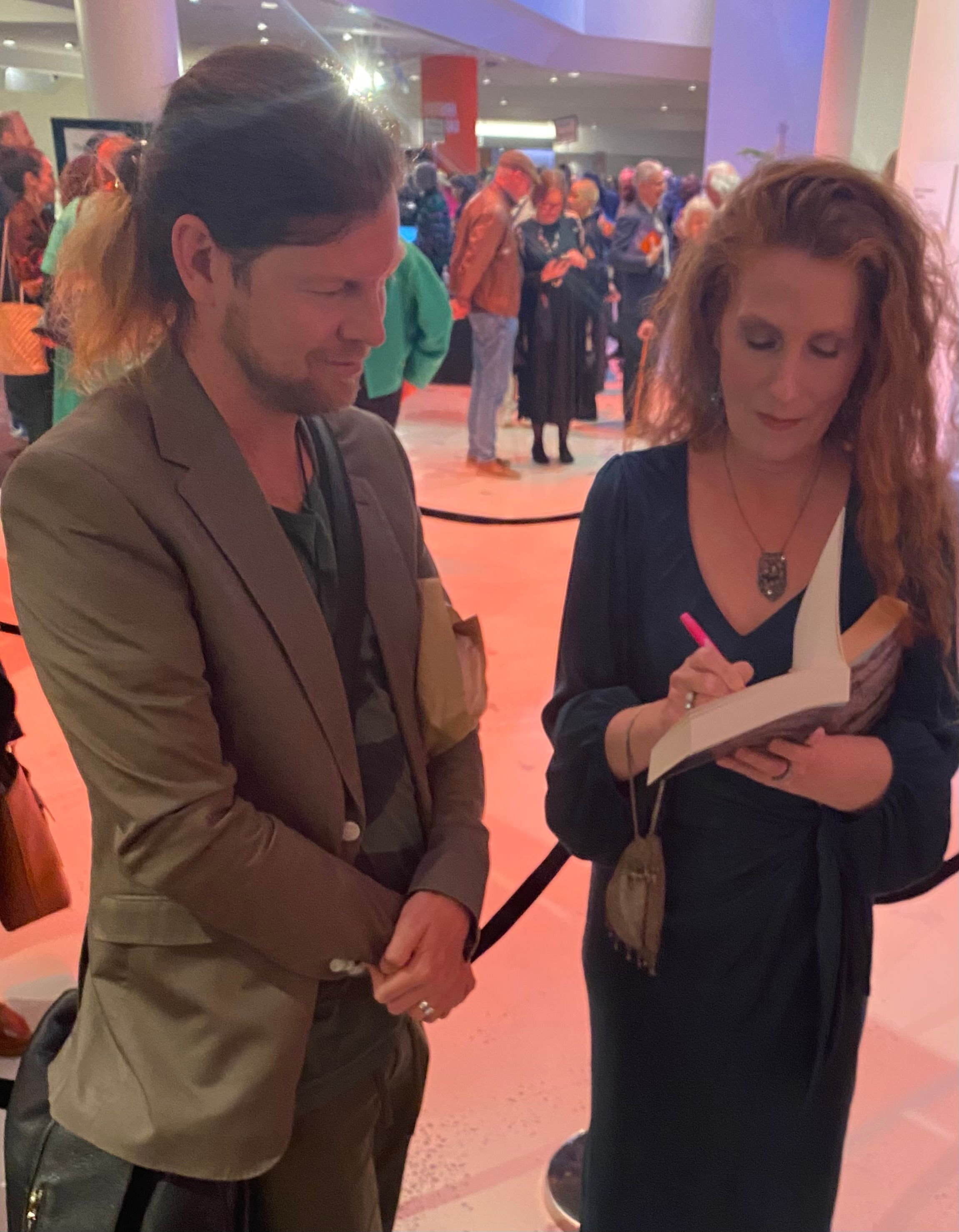
In the weeks before the ceremony, Chidgey described her incredible drive and future plans to The Big Idea - as well as her role in the star-studded edition of the Auckland Writers Festival which hits overdrive over the next four days.
Author, broadcaster, music critic and musician Nick Bollinger almost seemed lost for words as he accepted the hotly contested Booksellers Aotearoa New Zealand Award for Illustrated Non-Fiction with his revelatory, generational Jumping Sundays: The Rise and Fall of the Counterculture in Aotearoa New Zealand. It takes its title from the weekly throngs of young hippies and radicals that descended on Auckland's Albert Park in the late '60s and early '70s.
He described his book as “a remarkable story of beards and bombs, freaks and firebrands, self-destruction and self-realisation, during the 1960s and ’70s ”
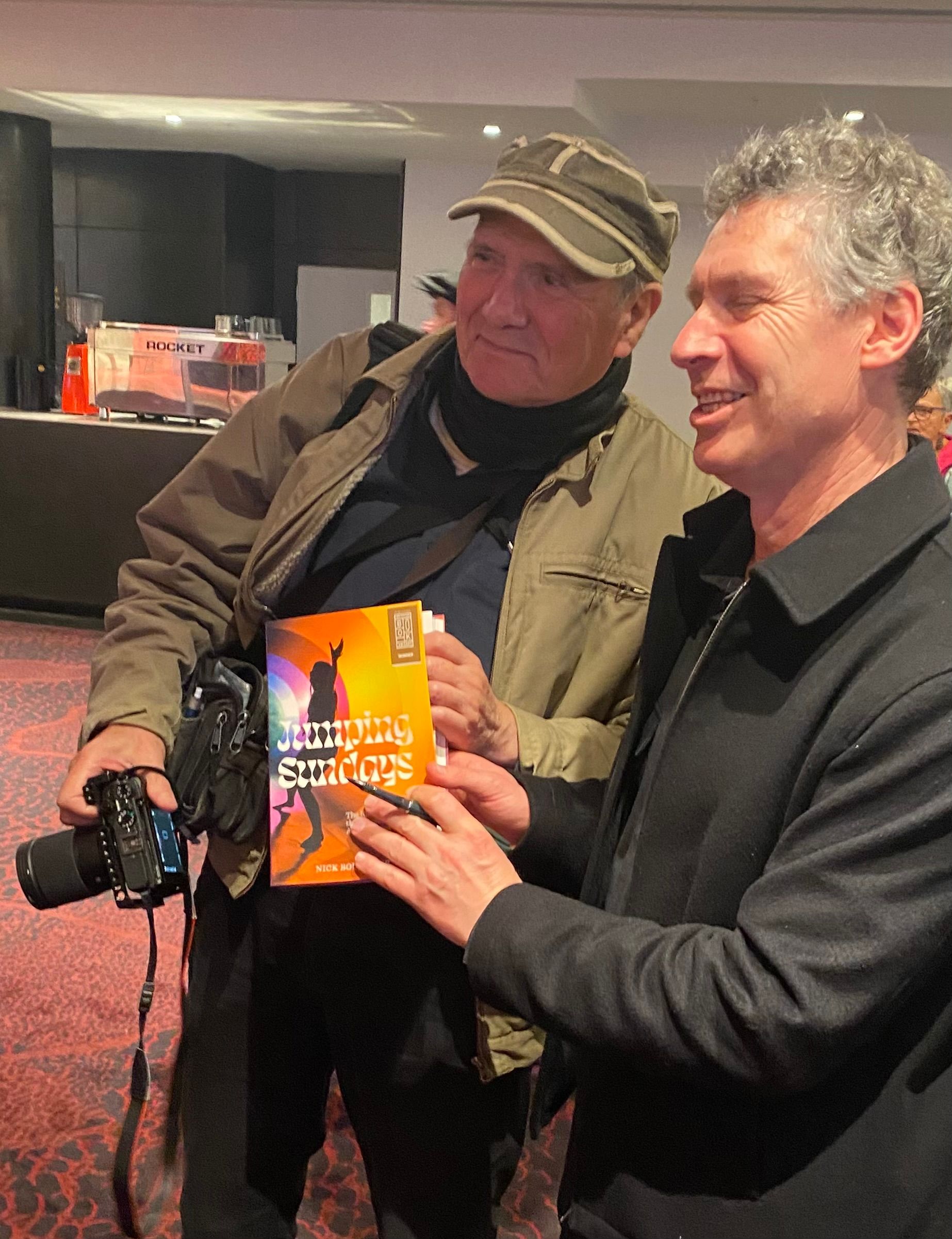
But after the event, Bollinger told The Big Idea he wasn’t prepared for victory.
“It’s very esteemed company - all of those books are great. They’re all completely different. I don’t know how you judge one against another.
"In that category, it was important to me because there are 150 photographs in there and I chose each one very carefully because the photographs in a lot of cases actually told the stories. I was kind of expecting the prize would go to one of those ‘coffee-table books’ you know.
"It felt right … I want to have something for people to read on a bus.”
The event was a significant success for the awards organisers, and the people who are so passionate about literature in Aotearoa.
The chair of the New Zealand Book Awards Trust Te Ohu Tiaki i Te Rau Hiringa, Nicola Legat, was justifiably proud of the stats.
They included an increase in prize money to more than $110,000, 191 books entered, 19 publishing houses, and 13 ‘heroic’ judges.
Historian and lawyer Ned Fletcher took out the General Non-Fiction Award for his weighty tome, The English Text of the Treaty of Waitangi (Bridget Williams Books).
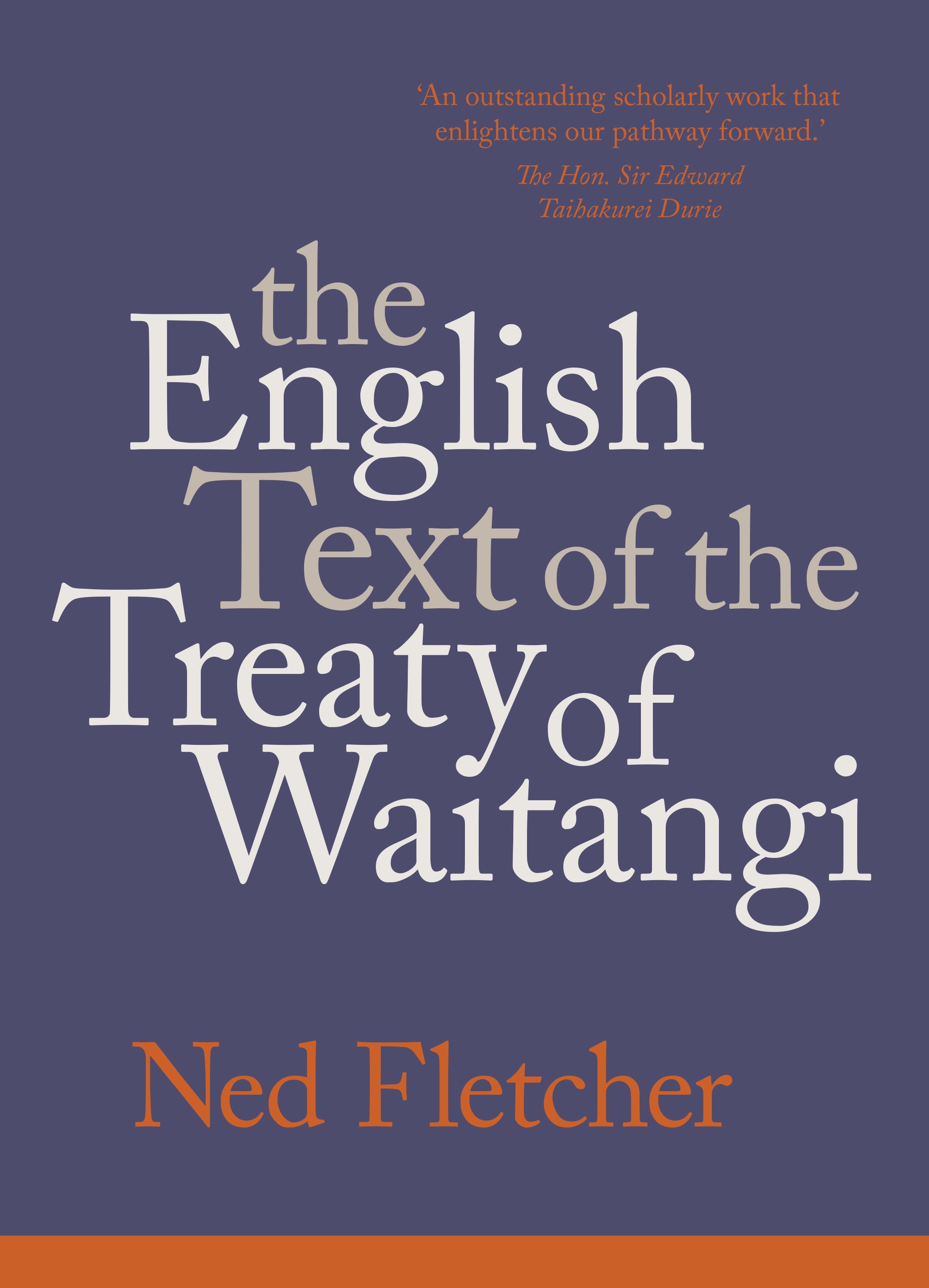
It stretches out to 720 densely packed pages .. and is described as “a meticulously constructed work of scholarship that provides surprising and essential analysis of Te Tiriti.”
It’s been 15 years in the making for the South Auckland law firm boss, who was educated at Oxford University. And he hasn’t lost his sense of humour over the scholarly nature of his opus.
“I was never sure it would be published. I was pretty confident no one would buy it let alone read it.
"Never in a thousand years with this book was I going to win this prize”.
Poetry was also centre stage, as the fierce and passionate creations of Māori scholar Alice Te Punga Somerville won the Mary and Peter Biggs Award for Poetry for Always Italicise: How to Write While Colonised (Auckland University Press).
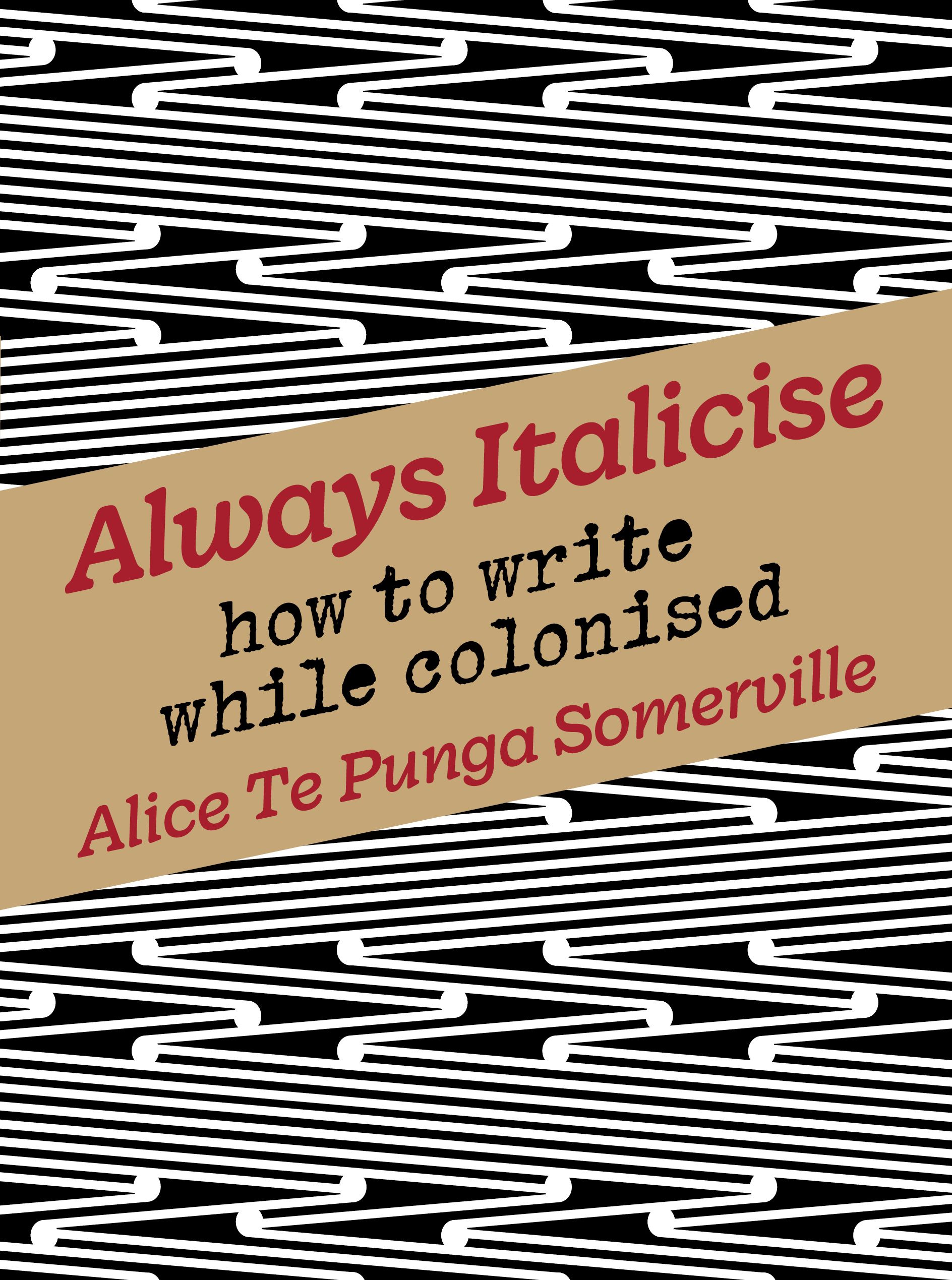
Her collection edged some equally determined competition and was described as “like a waka seeking new ground and understanding of what it’s like to be a Māori woman scholar, mother and wife, navigating uncomfortable and hostile spaces.”
The next big things in Aotearoa’s publishing world were also announced, supported this year by the Mātātuhi Foundation, and the diverse quartet all made an impression with on-stage renditions of their work early in the evening;
Hubert Church Prize for Fiction
Home Theatre by Anthony Lapwood (Ngāti Ranginui, Ngāi Te Rangi, Ngāti Whakaue, Pākehā) (Te Herenga Waka University Press)
Jessie Mackay Prize for Poetry
We’re All Made of Lightning by Khadro Mohamed (We Are Babies Press, Tender Press)
Judith Binney Prize for Illustrated Non-Fiction
Kai: Food Stories and Recipes from my Family Table by Christall Lowe (Ngāti Kauwhata, Tainui, Ngāti Maniapoto) (Bateman Books)
E.H. McCormick for General Non-Fiction
Grand: Becoming my Mother’s Daughter by Noelle McCarthy (Penguin, Penguin Random House)
They all scored $3,000 and a 12-month membership subscription to the New Zealand Society of Authors.
There was a serious buzz from the literati and book fanatics after an impressive show of talent in central Auckland.
The alphabetically organised shop of contemporary New Zealand fiction, non-fiction and poetry was doing a brisk trade after the event.
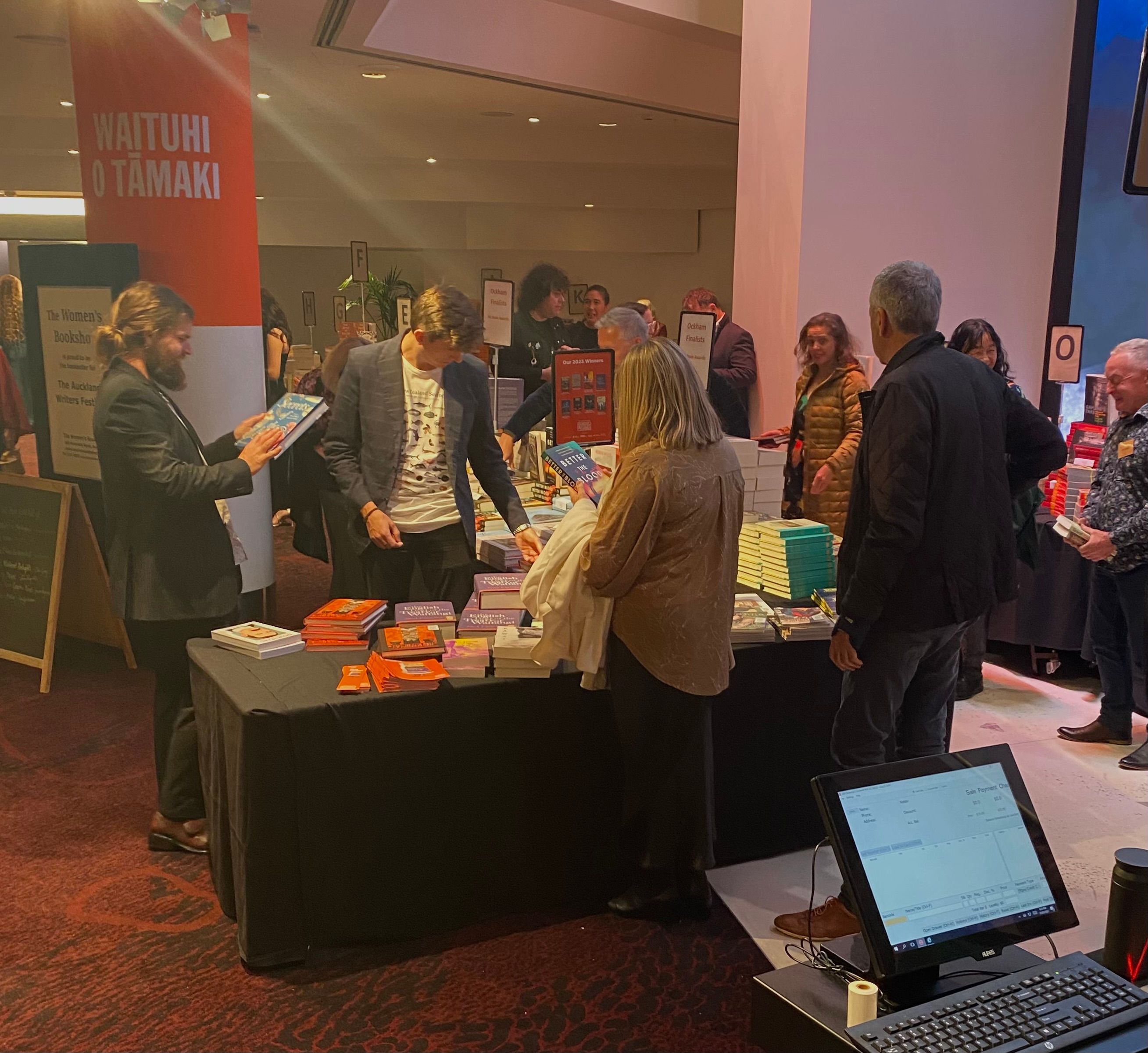
Now the Ockhams are out of the way, it’s time to make way for the likes of Chidgey and Bollinger - along with all the international stars for the business end of the Auckland Writers Festival.